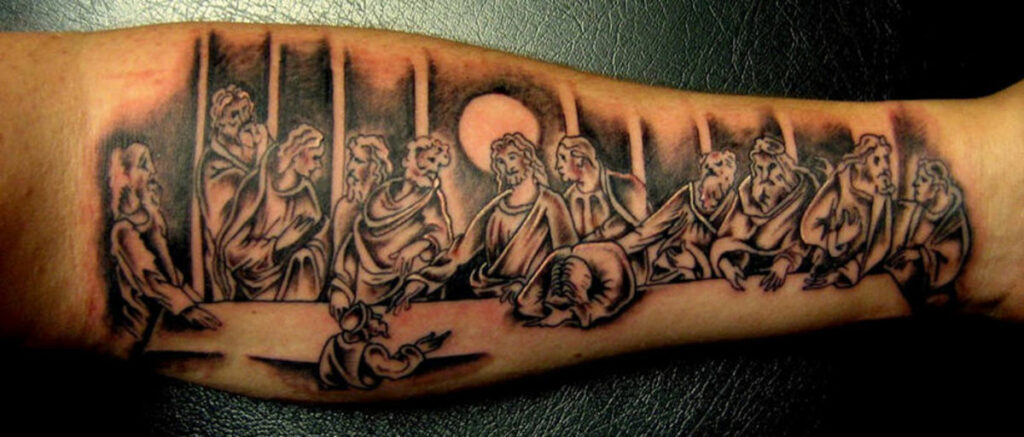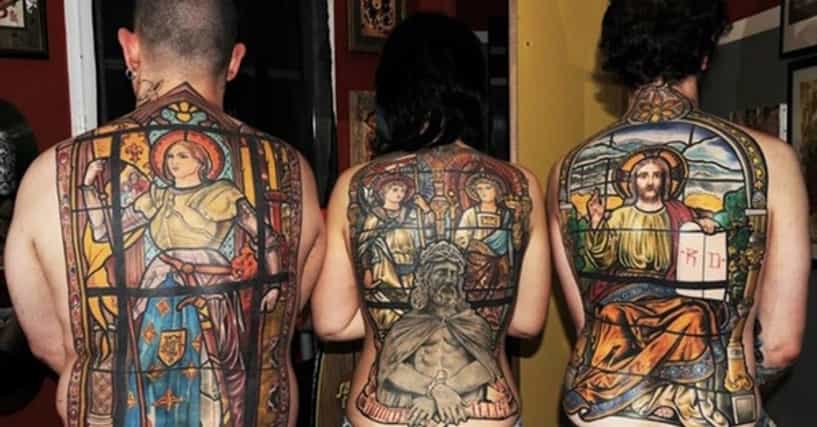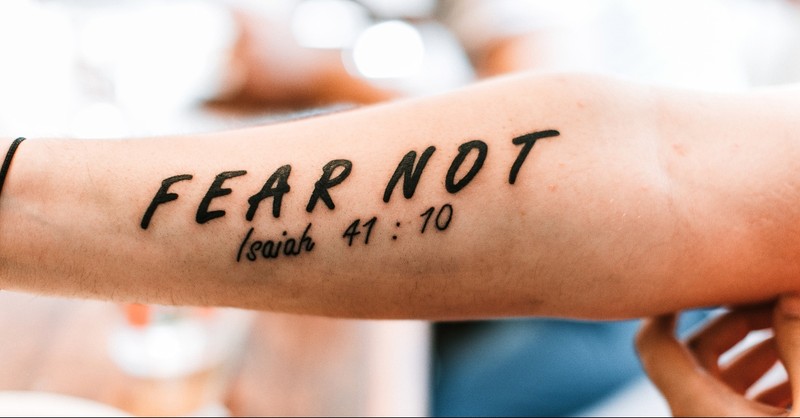People get tattoos all over their body for various reasons, including:
Self-expression: Tattoos can be a way for people to express their personality, beliefs, and values. Some people choose to get tattoos all over their body as a way to showcase their individuality and creativity.
Cultural and religious significance: Tattoos can have deep cultural and religious significance in many communities. Some people may get tattoos all over their body as a way to honor their heritage or religious beliefs.
Commemoration: Tattoos can be a way to commemorate important events, people, or milestones in a person’s life. Some people choose to get tattoos all over their body to represent significant life experiences, such as births, deaths, or personal achievements.
Aesthetics: For some people, tattoos are a way to enhance their appearance or create a specific style. Getting tattoos all over their body can be a way to achieve a particular aesthetic or look.
Personal challenge: For some individuals, getting tattoos all over their body can be a personal challenge or a way to push their boundaries and test their limits.
Ultimately, the reasons why people get tattoos all over their body are deeply personal and vary from person to person.

Forbidden by the Church?
Tattoos are not strictly forbidden in Catholicism. The Catholic Church does not have an official stance on tattoos, and there are no specific biblical references that forbid or condone the practice of tattooing. However, some Catholic individuals and communities may hold personal or cultural beliefs that discourage or forbid the practice of tattooing.
In general, Catholic teaching emphasizes the importance of respecting and caring for one’s body as a temple of the Holy Spirit. Therefore, it is important for individuals considering getting a tattoo to carefully consider the potential risks and benefits, and to make an informed decision that aligns with their personal values and beliefs.
It is also worth noting that some Catholic religious orders and communities may have their own specific guidelines or restrictions on tattoos, as part of their own spiritual practices and traditions.
In 2018 at a meeting with young Catholics before the Synod of Bishops on Young People, a Ukrainian seminarian asked Pope Francis about tattoos and how to discern the “good” parts of modern culture. “Don’t be afraid of tattoos,” Pope Francis instructed, because they can be starting points for priests to connect with the young. He continued on to say that “tattoos signify membership in a community” and can open up conversations about belonging.

While the Catholic Church is open to the practice, Orthodox Christian traditions, tattoos are forbidden because they are seen as a form of self-mutilation and a violation of the commandment to not make any cuts in one’s flesh.
In Jewish law, tattoos are prohibited because they are seen as a form of self-mutilation and a violation of the commandment to not make any cuts in one’s flesh. Tattoos are generally considered haram (forbidden) in Islam because they involve altering the body, which is considered to be a gift from Allah. Sikhs are discouraged from getting tattoos because the body is considered to be a sacred temple, and tattoos are seen as a form of self-mutilation that defiles the body.
Some Buddhist traditions discourage or forbid tattoos because they involve marking the body, which is seen as a form of attachment and a distraction from the spiritual path.
These religious prohibitions on tattoos are often rooted in the belief that the body is a sacred vessel that should be respected and cared for, and that altering or defiling the body in any way is a form of disrespect or disobedience to divine will.
Read more from the Catholic Answers.
